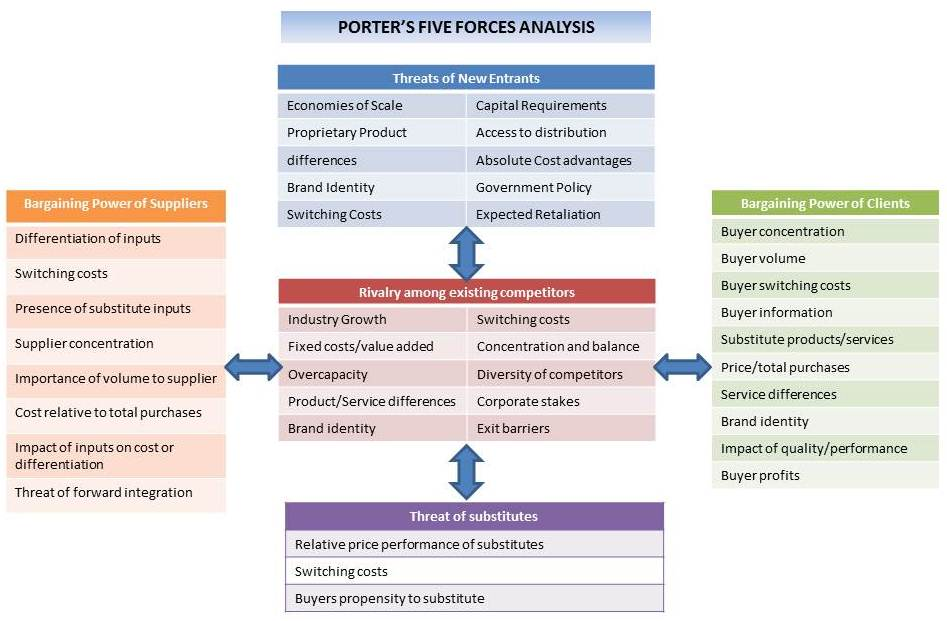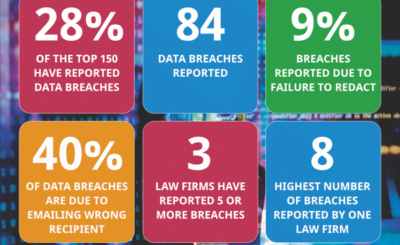Back to Basics — a Business Briefing for Lawyers: Succession and Retirement.

Welcome to our most recent edition of Back to Basics — a Business Briefing for Lawyers. This month the focus is on Succession, Succession Planning and Retirement.
I’m delighted to include in this edition, an article by Douglas Mill, former Chief Executive of The Law Society of Scotland and currently Director of Professional Legal Practice of the Diploma in Legal Practice at the University of Glasgow. Douglas has a special interest in this field and has advised many firms on their succession strategy.
No matter how far you’re into your legal career, you need to think about and make plans for your succession—and review these on a regular basis. Whilst your retiral may not be imminent, it will come at some stage and it’s best to be ready for it when it does.
If you need any help in this area, please get in touch with me—I’d be delighted to help.
Brian O’Neill LL.B MBA
Business Consultant
40c Drakemyre
Dalry
North Ayrshire
KA24 5JE
t. 07855 838395
We all need to go sometime—how will you go?
This month saw the disappearance of two formerly prominent Scottish Legal Firms—and for very different reasons. McGrigors merged with Pinsent Mason—and became….Pinsent Mason. The Judicial Factor who had been appointed to manage the affairs of Ross Harper decided, on 30th April, that the business could no longer continue to trade and closed it down. Two names that have been most prominent in the legal profession for many years are no more.
We all need to consider the “end game” at some point. For myself, if was a change of career and leaving private practice as a solicitor to seek out new challenges. For some solicitors in recent times, their exit from practice has not been through choice but through the process of cost cutting and redundancy.
We are going through (and arguably, at last, beginning to come out of) the recessionary cycle—although the last two quarters of shrinking GDP would not have us believe that!! It continues to be incredibly tough for solicitors in firms of all sizes and the focus needs to be on managing the costs whilst striving to increase the revenue.
As market conditions slowly begin to improve, there is a need to reset horizons and start to concentrate on the strategic development of the business and a review of the business objectives. Part of this process should also be to consider the options you have for succession and how you might plan for that day when you take your foot off the gas and start to take more of a back seat.
Those of you who are partners need to consider how best to exit the business when the time comes—in fact, it’s a very good idea to have some sort of idea of when that time might be. My colleague, Stephen Vallance, made a decision some years ago that he would leave private practice before he was 50—and just a couple of years ago, at the age of 46, he negotiated a successful exit after having built a very successful and profitable firm.
So, when you’re revisiting your objectives and setting out the strategy that will take you forward as the economic cycle turns, don’t forget to look at the structure of your firm and take the time to consider what you need to do to ensure that you have choices as you head towards your chosen exit date. It’s simply no use to wake up on your 60th or your 65th or, heaven forbid, your 70th birthday and think “This is the day I’m supposed to retire….but I can’t do that because there’s nobody who can take over from me”.
Whether you wish your exit to be phased or come to a quick end, if you have some idea of how you can secure a return on your investment at an early stage you will at least have something to strive for.
Simon says…..
Are you making a success of your succession planning?
There is a definite issue with succession planning nowadays and I know a fair few senior partners that have already recognised it themselves. I appreciate that this is a multi-layered issue and Brian can only touch on it in the space available; I will target my comments on just a few areas in summary.
The traditional succession model where a senior partner is bought out of firm by a junior partner has failed. The banks will not lend the kinds of sums required by senior partners, so unless the money is in the firm to buy out a capital account – it cannot be bought out. Very few firms have these sums readily available and therefore it is my view that this model has failed, it just doesn’t work anymore and needs to be changed.
I understand why the banks won’t lend to junior partners and its nothing to do with the junior partners, it’s all to do with the banks perceived value in what the junior partners are buying – they perceive very little value. That is not to say there is no value in law firms – clearly there is – but the traditional partnership structure is perhaps out of sync with today’s economics. If a partner works 30 years building up his practice – this is recognised in the firm’s accounts; but from the banks perspective once that partner walks away the earnings power walks away too therefore, they argue, the potential earnings are dramatically diminished and the loan to return ratio is too short (and risky) and they will decline to loan. I understand the underlying problem too. The partner hasn’t created any self sustaining value in his business that enables the business to continue when he is absent from it. If you can demonstrate that your business is self sustaining then it can be the subject of a business loan rather than a personal loan; then that’s a whole different category of ‘investment’ that a lender can look at in a different light. If you haven’t developed this kind of business model, you need to take action now and be prepared to work until it takes effect; however long it takes.
There is a further challenge that ought to be recognised – if senior partners are working longer then there aren’t the opportunities for junior partners to move on up as quickly as they intend. These junior partners have more choice then to simply wait around for senior guys to get their act together. It has never been easier to start up yourself or with a group of like minded colleagues (LawWare’s LawCloud is experiencing huge growth in this segment) – in this scenario the senior partner is potentially left isolated with an asset that cannot be fully realised.
Another thing to be aware of – banks won’t support ailing firms for long nowadays. If firms are waiting for the recession to end before returning to better times – stop living in the past. The current business environment is the one you must live in and prosper within. There have already been major changes enforced on well known law firms as a result of not changing quickly enough; the resulting rapid mergers, or worse judicial factor appointments, are happening much more frequently nowadays. This is symptomatic of a ‘head in the sand’ culture. Don’t be like them. Law firms are businesses, if they are run on any other basis other than a sound commercial one, then I truly fear for them.
I was talking recently to a senior figure in the industry and I mentioned to him my greatest fear – the impending cull of senior partners that could potentially find themselves out on a limb because they wouldn’t change the business structure away from being all about them. He was shocked that I put it in such harsh words but he didn’t disagree. There is no safety in numbers in this regard; it is literally every man/woman for him/herself when it comes down to leveraging your capital account. If you don’t protect it – no one else will and as it has a direct impact on the quality of your life after work you need to be proactive – if you ever want to stop working that is!
Simon Greig is Sales Manager of LawWare Limited, Edinburgh. Contact Simon at simon@lawware.co.uk
It’s never too early…….to plan your exit strategy!
By Douglas Mill
The recession didn’t come at the right time for the legal profession in Scotland. Over-expansion over the last 15-20 years, allied to the ‘bulge’ of the Baby Boomers still 5-10 years short of retiral, created a sad situation—for this first time in the profession’s history retirement was not a given.
Much media focus has been on the big commercial firms whose structures and client work were such that they were most vulnerable when commercial work fell off a cliff. This quicklyon trainees and law students. Things became tough almost overnight. It takes 7 years generally to produce a solicitor, but the economy can crash almost instantly. People realised that getting into the profession was problematic. What has not yet been highlighted is that getting out is almost as difficult.
This applies to probably about 600 firms in Scotland—and a high percentage of our sole practitioners. It is going to be exacerbated as the effects of the Double-Dip kick in. It is simplistic to say the first wave of recession hurt the big firms and the second hit the High Street, but when people in public service start to lose their jobs the immediate impact will be felt by family lawyers.
It is hard to be over sympathetic to elderly partners who have taken the Lion’s Share for years, keeping good youngsters at bay on the age-old promise that “someday this will all be yours”. What will be? Partnership is now a risky business and banks will find many reasons not to grant practice loans—and forget getting £s for goodwill. This generation are more risk-averse—and for good reason!
Most solicitors haven’t been like that and it really is not hard to feel sorry for them. Most have been hard working stewards for their firm. However, the prudent investments in an Equitable Life pension and RBS shares have made retirement an ever-receding prospect. Reducing fee income makes it harder to earn new partners in and old partners out. Few partnerships talk openly about their plans and expectations. A good, say, 6 partner firm should have partners spaced apart in age, but who was ever that visionary?
Retirement ages are increasing and will continue to do so. The profession will have to adjust to that and start planning accordingly. Firms whose strategy is just to wait and see can expect their partners to die in harness. No one is going to do this for you. If your partners are reluctant to face these realities, prioritise yourself. Remember you have duties also to your family, friends—and yourself. It actually never is too early to plan your exit strategy—but in this climate it could soon be too late!
Douglas Mill is Director of Professional Legal Practice of the Diploma in Legal Practice at the University of Glasgow. Douglas can be contacted on Douglas.Mill@glasgow.ac.uk
Consider your options……
Most solicitors, when considering succession and retiral, look within the firm and, on many occasions, leave it far too late to bring on board Partners who have the right quality to continue the firm and secure a sufficient return to the retiring partner. This assumes that the firm is a Partnership. When considering your succession options, you might want to have a look at your business vehicle and work out, with your accountants and financial and business advisers, which would be the most suitable, tax effective vehicle to be in when you’re looking at building a succession plan—the traditional partnership model may not be the right vehicle for the job and an LLP or Limited Company might be a much better option.
An alternative might be some form of merger or acquisition—a sort of “buy in” of the right kind of talent that will secure the future of the business, enlarge its client base, improve its profitability (if economies of scale lead to reduction in duplication of personnel) and provide a platform from which you can extract sufficient value to get out when you want.
Alternative Business Structures potentially offer a further route for consideration—depending on the eventual percentage ownership interest available to the external investor and, leading up to retiral, could provide an option for disposal of part of the business for “cash”. This is an interesting area that will develop in the next year or so.
Building from within will probably remain the preferred option for most firms and, if this is the route to be followed, the sooner the planning starts, the better. Remember, this is business—and if you want the business to succeed you need to surround yourself with skilled, able people who can support the continuation of the business without you actually being there.
Finally, you must consider what your financial needs will be when you do decide to go. It’s essential to prepare a retiral budget to work out exactly how much you will need on a month to month basis—not only to spend on those essential bills, but to provide for unexpected eventualities. You really need to be as “debt free” as possible and that means you need to start now to plan your financial future and build up your nest egg to ensure that your retiral is as financially comfortable and secure as it possibly can be.
Contact us
Brian O’Neill LL.B MBA, Business Consultant, t. 01294 833220, m. 07855 838395, e. brian@drakemyre.co.uk
Simon Greig is Sales Manager of LawWare Limited, Edinburgh. Contact Simon on simon@lawware.co.uk
LawCloud: Legal Case, Matter and Practice Management for Law Firms UK








Recent Comments